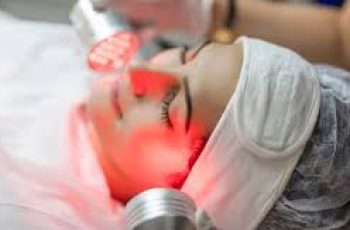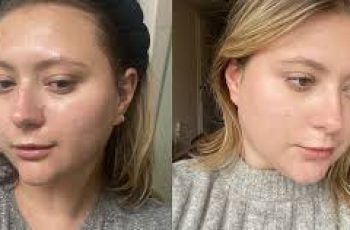
Retinol Safety
Is retinol safe? Does retinol cause cancer? We will answer those questions and more about retinol cream safety, dangers and risks.
Retinoids are natural or synthetic compounds in the Vitamin A family. Retinol is a type of retinoid and can be found in many different strengths and is available without a prescription. Most retinoids are safe when used properly. However, retinyl palmitate is a retinoid ester that can be dangerous.
Read more about the dangers of retinyl palmitate at this link. It is not discussed in this blog.
Retinoids are used orally and topically. Vitamin A and retinoids should be avoided in pregnancy as discussed below.
To use retinoids safely, make sure you are using the retinoids that are safe for your Baumann Skin Type and make sure you are using them with the correct products in your skin care routine.
Take the Quiz
Oral retinoids, prescription retinoid pills like Accutane
Oral retinoids such as prescription oral retinoids (isotretinoin, Accutane) and Vitamin A supplements lead to increased levels of Vitamin A in the blood and body fat. Taking retinoid pills can result in excess Vitamin A should be monitored closely. Vitamin A supplements can can toxicity if more than 4,000 IU per day is taken. ( Some medical publications say 10,000 IU’s per day is the toxic dose) An excess of oral Vitamin A from either oral medications or supplements can lead to liver problems and other issues because Vitamin A is a fat-soluble Vitamin that accumulates in fat and in the liver. It is impossible to overdose on Vitamin A from dietary sources only.
Safety of topical retinoid such as retinol creams and serums
Topical retinoids are much safer than pill and supplement forms of Vitamin A because topical retinoids have low absorption into the blood stream. Most retinoids (except esters and carotenoids) absorb well into skin but do not make it into the blood system very well.
Absorption of topical retinoids into the skin and blood stream
Topical retinoids all convert to all trans retinoic (ATRA) once inside the skin cell. ATRA enters the cell nucleus, binds retinoic acid receptors that then turn on and off cell DNA regulating important cell processes. Topical retinoids are safe as we will discuss later in this blog. Once in the skin cell, retinol turns into ATRA which is very similar to prescription tretinoin (Retin A).
Are Oral Retinoids Toxic?
Retinol is a naturally occurring form of Vitamin A necessary for life. Vitamin A is a fat-soluble vitamin that can have harmful effects if you are exposed to over 4000 IU/ kg every day for 6-15 months. It is impossible to reach this toxic dose with topical retinoids or dietary retinoids (like beta carotene), but taking oral retinoids like Accutane without the supervision of a doctor can lead to health problems. These can be monitored by taking monthly blood tests to check vitamin A levels, liver function and triglyceride levels. If you are taking oral retinoids, avoid taking Vitamin A supplements at the same time.
Can I take Doxycycline and Vitamin A together?
If you are taking doxycycline in addition to either Vitamin A supplements or an oral retinoid such as isotretinoin, please discuss this with your doctor. Taking Vitamin A supplements and oral doxycycline together can also cause a rare problem called pseudotumor cerebri which is a concern when acne patients are placed on oral retinoids and oral doxycycline at the same time.
Is Topical Retinol Toxic?
Topical retinol is not toxic. It is very unlikely that topically applied retinoids will significantly raise blood levels of retinol or ATRA. One study looked at the prescription retinoid called all trans retinoic acid (ATRA) and measured blood serum levels before, during, and after topical use for 14 days. They found that topical application did not result in increased blood levels of ATRA or other members of the Vitamin A/ retinoid family. Another study looked at topical application of tretinoin (Retin A and Renova) 0.05% for 28 days. There was no significant increase in serum levels of tretinoin. In fact, even after one year of therapy, absorption was only 1.1%. Topical application of isotretinoin 0.05% gel was also shown to have negligible systemic absorption. Tazarotene, one of the strongest retinoids, also has low systemic absorption. This means that topical retinoids such as retinol are safe. However, as discussed below, they are not recommended for use in pregnancy or heavy smokers.
Dangers of Retinol and Retinoid Creams
There are no known dangers of using retinoid creams except in the case of pregnancy or excessive smoking. However, do not take high doses of Vitamin A supplements if you are using high strength topical retinoids over large portions of your body. (The larger the area of the body that is exposed to retinoids, the more absorption will occur.)
Retinoid and Retinol Creams and Pregnancy Side Effects
Oral retinoids like Accutane have been shown to cause birth defects when used in pregnancy because Vitamin A plays an important role in embryogenesis (formation of the baby). It is doubtful that a small amount of topical retinoid placed on the face during pregnancy will harm the fetus – however, the danger level depends upon the type of retinoid. To be safe – all topical retinoids should be avoided during pregnancy. Don’t panic if you used retinol or retinoids before you knew you were pregnant. Studies have demonstrated that exposure in the first trimester of pregnancy to topical retinoids was not associated with an increase in birth defects. However- we still recommend avoiding them in pregnancy.
Does Retinol Cause Cancer?
Data on using retinoids long term has shown that retinoids are safe in most situations. The one exception is retinyl palmitate, which you can read more about by clicking this link.
Retinoids hey have been used for over 35 years and have been investigated in long term outcomes studies. One of these large long term studies showed that oral isotretinoin, beta-carotene, and topical tretinoin may increase morbidity risk in tobacco smokers. For this reason, long term use of retinoids is not advised for tobacco smokers.
Do Retinoids Prevent Cancer?
For many years it was hypothesized that retinoid use would decrease the risk of skin cancer, but long-term studies have shown that long term retinoid use was not shown to decrease the incidence of skin cancer. However, a recent study did show that high dietary Vitamin A was associated with a decreased risk of the skin cancer called squamous cell carcinoma.
Long Term Effects of Retinol and Retinoids
Retinoids are used all over the body in strong concentrations to treat psoriasis, so we have a lot of information about long term safety of topical retinoid creams. There are no adverse effects of using retinoids long term on your skin (unless you are a tobacco smoker or have lung disease). In fact, many studies have shown long term safety of topical retinoids. Long term use of retinoids has been shown to prevent skin aging.
Why is Retinol Bad for You?
Retinol is not bad for you. It is a naturally occurring Vitamin necessary for life. When you hear people say “retinol damaged my skin” or “retinol ruined my skin”, it is because they use the topical retinol improperly and had an irritant reaction that is a common retinoid side effect. These retinol side effects do not cause permanent damage to the skin and can be avoided by using the correct retinoid cream and using retinoids properly. Retinol has a bad reputation because of many retinoid myths and misinformation.
Retinol Damaged My Skin
Did retinol damage your skin? Most likely you are talking about a retinol burn. Using a soothing antioxidant oil can help sooth skin that feels damaged from retinol.
If you have a retinol burn, you may have 2 side effects. Don’t worry and be patient. Retinol damage is not permanent. The most common side effect of retinol is redness or erythema. Erythema is temporary skin inflammation that will go away. You can learn more about how to treat a retinol burn at this link. If you did get red or irritated from retinol, it is important to wear sunscreen so the inflammation does not lead to pigmentation. Pigmentation or dark spots on the skin can occur if inflamed skin goes into the sun. The resulting dark spots can take 12- 16 weeks to go away. This is why if you get redness from your retinol, you need to avoid sun and wear sunscreen to prevent dark spots. The dark spots on the skin are not permanent. Think of them as tanned skin. You need to use skin care products and sunscreen to lighten the dark spots.
Allergic Reaction To Retinol Or Retinoids
It is common to develop redness, skin sensitivity, peeling and other side effects when you first begin any retinoid including retinol in cosmetics. However, this is not a true allergy- and does not mean you are allergic to retinol; rather it is an irritant reaction. The difference is that an allergy is when your immune system is primed to react to an exposure to a substance and will react to small and large exposures. An irritant reaction does not involve the immune system and is dose related- small doses will not cause it but large doses will. This means that you can tolerate retinol- you just need to learn to use it properly. It is also important to use the right retinoid for your skin type and use the retinol in the correct step of your skin care routine. To find a list of skin care ingredients that can cause a skin allergy, look at this blog.
Sun Sensitivity to Retinoids
Do not use retinol in the daytime. It should be applied at night and washed off in the am. This is because the sun can break down the retinoid into different components that can make the skin sun sensitive. This problem is easily avoided by using retinoids at night. To learn more about retinoids and sun sensitivity click here.
Retinoids such as retinol are not dangerous when used topically. Oral retinoids should only be used under supervision of a doctor so your liver enzymes and lipids such as cholesterol can be monitored. Use of topical retinoids has not resulted in permanent skin damage or “ruined skin”.
Side effects can be avoided by using the best retinoid for your Baumann Skin Type and using them correctly with the right products in your retinoid skin care routine.


